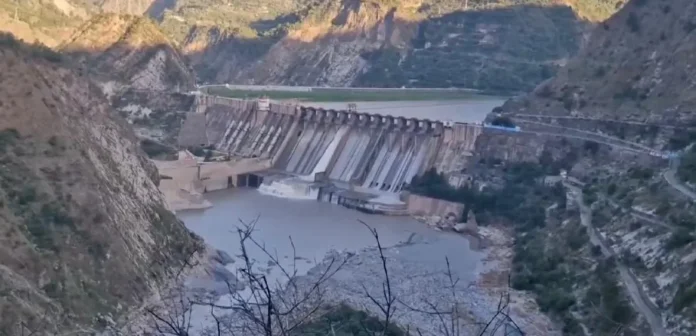NEW DELHI, May 15: In the wake of a devastating counteroffensive by the Indian Armed Forces that left Pakistan’s defence establishment reeling, Islamabad has now reportedly written to New Delhi, pleading for the reinstatement of the Indus Waters Treaty, which India recently put into abeyance.
According to media reports, Pakistan’s Ministry of Water Resources has formally requested India to resume the flow of rivers into its territory under the long-standing Indus Waters Treaty. The appeal comes days after India suspended the 1960 agreement following a Pakistan-backed terrorist attack in Jammu and Kashmir’s Pahalgam on April 22, which claimed the lives of 26 civilians, mostly tourists.
The Indus Waters Treaty, brokered by the World Bank, has been a pivotal accord governing water sharing between the two nations for over six decades. However, India, invoking national security interests, halted the treaty until Pakistan takes credible and irreversible steps to end its support for terrorism.
The decision was ratified by the Cabinet Committee on Security (CCS), the nation’s apex body for strategic matters, marking the first instance in history that New Delhi has paused the bilateral agreement.
In its letter to India’s Ministry of External Affairs, Pakistan’s government warned that the suspension of the treaty could trigger a major domestic crisis. The plea reflects growing desperation within Islamabad’s corridors of power, which have come under intense pressure following India’s military response, dubbed Operation Sindoor.
Prime Minister Narendra Modi, in his first public address since the operation, made India’s position unmistakably clear. “Water and blood cannot flow together,” he asserted. “Terror and talks cannot happen at the same time. Terror and trade cannot happen simultaneously.”
Indian officials have dismissed Pakistan’s concerns, underscoring Islamabad’s long-standing use of terrorism as a strategic tool. As per the treaty, India controls the eastern rivers—Sutlej, Beas, and Ravi—while Pakistan receives water from the western rivers—Indus, Jhelum, and Chenab.
India has now unveiled a comprehensive three-tier strategy—short-term, mid-term, and long-term—to ensure that not a single drop of the Indus waters entering from Indian territory flows into Pakistan unutilised. Union Jal Shakti Minister C.R. Paatil emphasized that steps are already underway to achieve this goal.
Foreign Ministry Spokesperson Randhir Jaiswal reinforced India’s position, stating: “The Indus Waters Treaty was founded on goodwill and friendship. Pakistan has trampled on these values by supporting cross-border terrorism for decades.”
The robust response follows the launch of Operation Sindoor, a swift and decisive military campaign that led to a temporary ceasefire. However, New Delhi has clarified that any further dialogue with Islamabad will be restricted to one issue: the complete cessation of terrorism and the return of Pakistan-Occupied Kashmir.
Under the original treaty, Pakistan received 70% of the Indus river system’s total water volume, with India retaining 30%. With the treaty now suspended, the Modi government is reportedly accelerating the development of delayed hydroelectric projects along the rivers.
A high-level meeting is expected to take place this week involving Home Minister Amit Shah, Jal Shakti Minister C.R. Paatil, Power Minister Manohar Lal Khattar, Agriculture Minister Shivraj Singh Chouhan, and senior officials from all relevant ministries. This will follow two prior meetings between Amit Shah and senior water and power ministry officials since the suspension was enacted.

